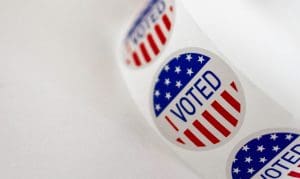The economic crisis caused by the coronavirus pandemic poses a triple challenge for tax policy in the United States. Lawmakers are tasked with crafting a policy response that will accelerate the economic recovery, reduce the mounting deficit, and protect the most vulnerable.
To assist lawmakers in navigating the challenge, and to help the American public understand the tax changes being proposed, the Tax Foundation’s Center for Federal Tax Policy modeled how 70 potential changes to the tax code would affect the U.S. economy, distribution of the tax burden, and federal revenue.
In tax policy there is an ever-present trade-off among how much revenue a tax will raise, who bears the burden of a tax, and what impact a tax will have on economic growth. Armed with the information in our new book, Options for Reforming America’s Tax Code 2.0, policymakers can debate the relative merits and trade-offs of each option to improve the tax code in a post-pandemic world.

How Do Build Back Better Taxes Affect 5G Competition?
One unintended consequence of the tax proposals in the Build Back Better Act is a higher potential burden on wireless spectrum investments, which could slow the build out of 5G technology as the U.S. races to compete with other countries—moving in the opposite direction of countries like China that are actively subsidizing 5G expansion.
5 min read
Republican Cannabis Bill Would Tax by Category
Rep. Mace (R-SC)’s States Reform Act would deschedule, regulate, and tax cannabis products with a novel federal excise tax design—based on quantities and predefined categories, not dissimilar from how the federal government taxes alcohol and tobacco.
7 min read
Economy Loses More than Revenue Gains in the House Build Back Better Act
Due to the House Build Back Better tax plan’s economically costly and inefficient tax increases, our analysis finds that long-run GDP would drop by a little over $1 for every $1 in new tax revenue.
6 min read
Comparing Tax Provisions in Different Versions of the House Build Back Better Act
The most recent versions of President Biden’s Build Back Better plan are improvements on the original proposal, but would still reduce economic growth and average after-tax incomes for the top 80 percent of earners in the long run.
7 min read
Complexity Harms Tobacco Tax Design in Cigarette-Popular Indonesia
Indonesia, the world’s second-largest cigarette market, has a uniquely complex system when it comes to taxing its tobacco consumption, which is almost exclusively cigarettes (98 percent).
4 min read
Despite Slip in International Tax Competitiveness Index, Germany Retains Top G7 Rank
More often than not, by looking at Germany’s tax code as an example, G7 countries can improve the stability of their revenues and the lives of those they represent.
5 min read
Spain’s 2022 Budget Unsurprisingly Comes with More Tax Hikes
While other countries in Europe are working towards introducing tax cuts or delaying the introduction of new taxes to stimulate economic recovery by supporting business investment and employment, Spain is putting more fiscal pressure on businesses.
3 min read
Wrong Tax Base Leads to Multiple Issues for Federal Nicotine Tax Proposal
The nicotine tax proposal in the Build Back Better Act neglects sound excise tax policy design and by doing so risks harming public health. Lawmakers should reconsider this approach to nicotine taxation.
8 min read
Tracking 2021 Election Results: State Tax Ballot Measures
Through 10 ballot measures across four states—Colorado, Louisiana, Texas, and Washington—voters will decide significant questions of state tax policy.
7 min read
Austria’s Budget Comes with Tax Cuts and Carbon Levies
Austria should not shy from lowering the corporate income tax rate sooner or even implementing a more ambitious tax reform to improve its tax competitiveness and contribute to greater economic growth.
3 min read